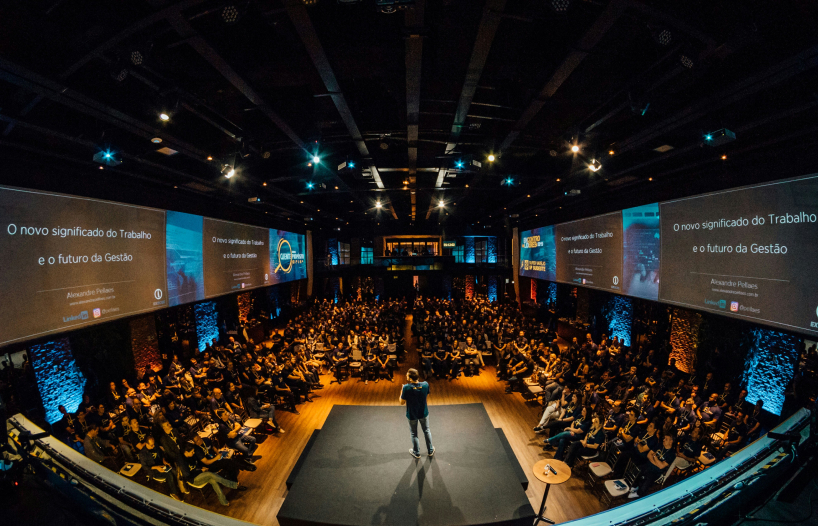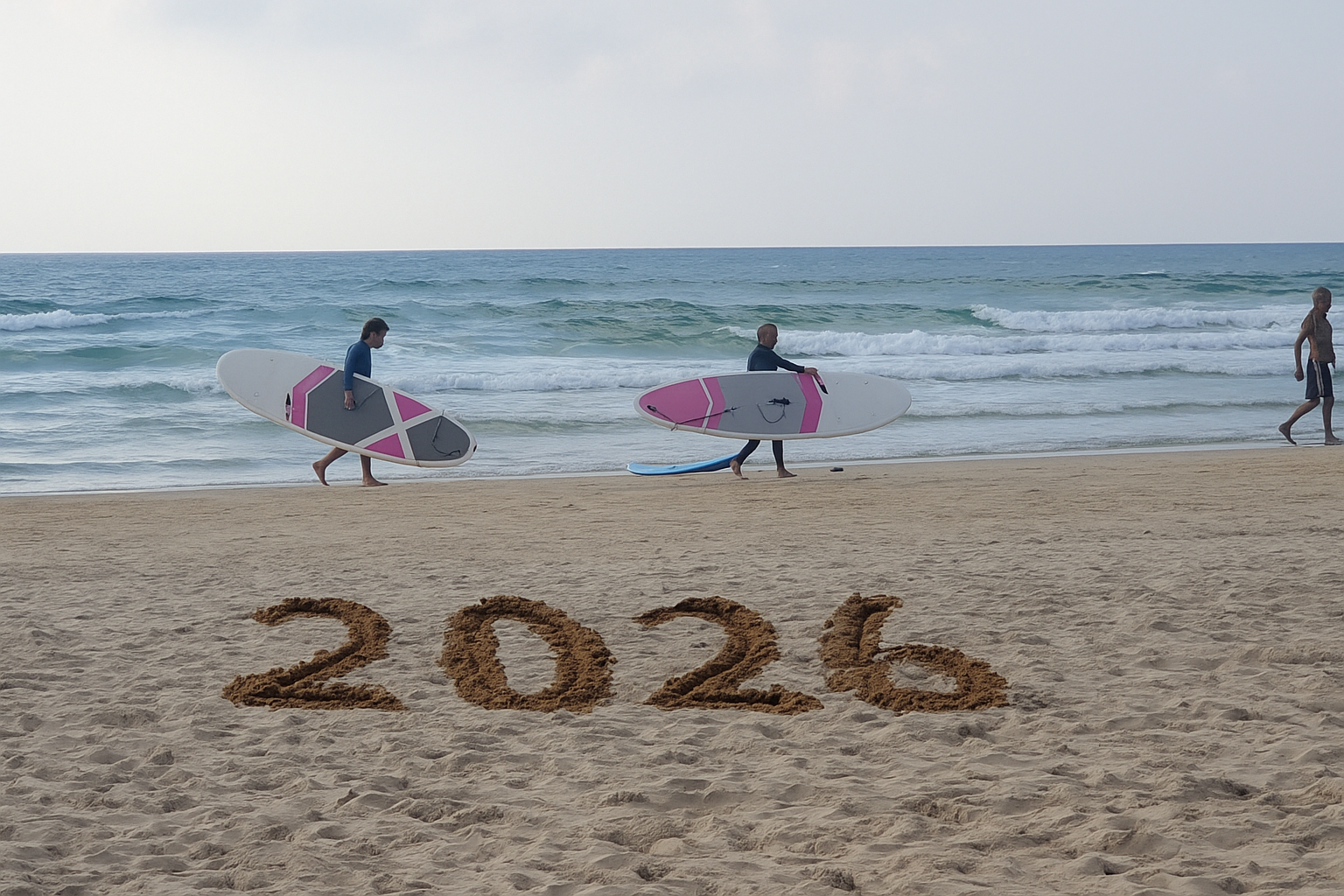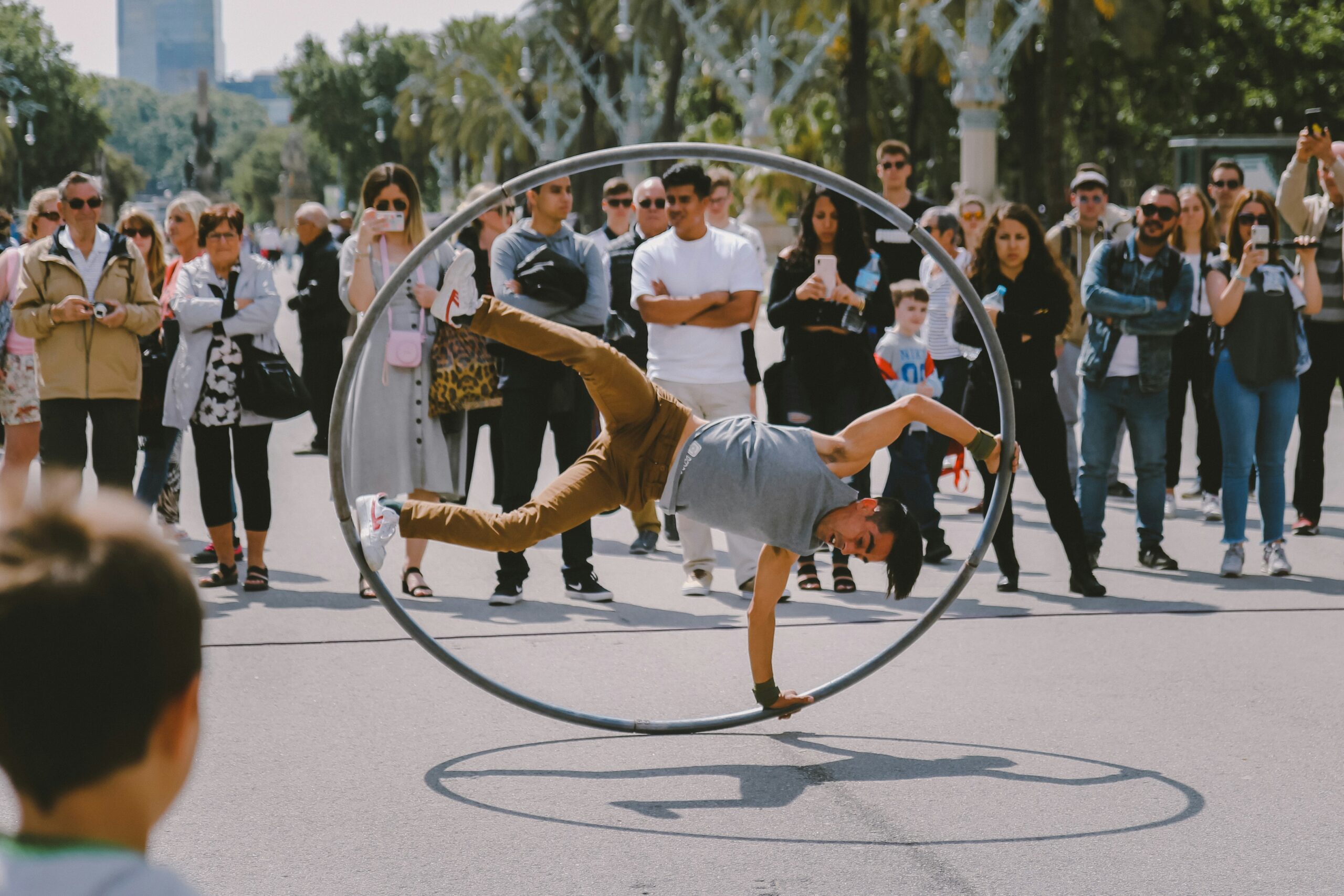
After 15 years, HubSpot has officially replaced its iconic Inbound formula – Attract, Engage, Delight with a completely new framework: Loop Marketing.
And if you’ve been feeling that your funnels aren’t converting the way they used to, your SEO traffic is dipping, or your buyers are “everywhere and nowhere” at once HubSpot’s announcement explains exactly why.
Spoiler:
It’s not your content.
It’s not your ads.
It’s not your funnel.
It’s the buyer journey itself and it has fundamentally changed.

Why Inbound Marketing Is No Longer Enough
According to HubSpot, 58% of Google searches now end without a click.
Buyers aren’t moving through clean, linear funnels anymore. Instead, they hop between:
- Gmail
- YouTube
- TikTok
- ChatGPT + AI recommendations
- And back again
They see product reviews on TikTok, compare solutions via YouTube creators, ask ChatGPT for alternatives, read Reddit threads, check their email, click one ad… and disappear for 3 weeks. As Forbes stated in The creator economy has moved beyond niche marketing – it’s now central to how brands build trust and grow. It’s a $250 billion global force reshaping how brands build loyalty, drive engagement and grow their businesses. Once viewed as a playground for influencers, today’s creator economy is at the center of serious business strategies – and it’s only getting bigger. Goldman Sachs predicts it could nearly double to $480 billion by 2027, according to their 2023 Creator Economy report.
Brands are adapting fast. Across industries, businesses are moving from traditional influencer partnerships to more structured, community-driven programs. They’re not just sponsoring creators – they’re building platforms to empower them.
So the funnel isn’t broken.
It has dissolved.
The Loop Marketing Playbook – Connect at the speed of today’s buyer.
The old marketing flow looked like that:
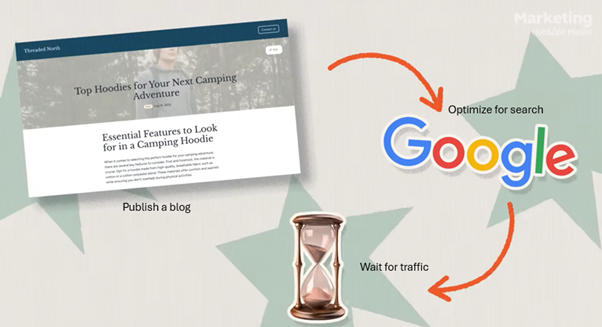
Instead of turning to Google for the answers to all their curiosities and questions, consumers are increasingly watching YouTube reviews, asking ChatGPT for recommendations, scrolling through social feeds, and messaging influencers instead. Meanwhile, AI search engines are serving up “summarized” direct answers to them instead of sending them to your website. What are we to do? So the fundamentals of Attract, Engage, Delight are still valid but how we do them has evolved. A Loop Marketing strategy can help you navigate this new era of AI and audience behaviour. Instead of a top-down funnel, Loop Marketing creates a continuous, evolving cycle across four stages:
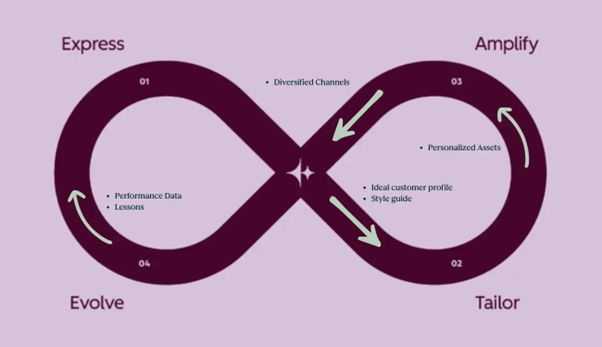
1. Express – Define your brand and positioning (with precision)
This stage establishes your narrative, core messaging, differentiation, and personality.
It answers: “What do we stand for – and how do we say it consistently everywhere?”
2. Tailor – Personalize every touchpoint
Not just “Hi [First Name]” personalization.
Real personalization: role, context, need, timing, behaviour, sentiment, intent.
3. Amplify – Distribute your message everywhere your buyers actually are
Across both human and AI-driven channels:
- YouTube
- TikTok
- Search
- And increasingly: AI recommendations, AEO, and chat-based discovery
4. Evolve – Learn and optimize in real time
Each loop teaches you what to repeat, what to refine, and what to drop.
This is where AI analytics, dashboards, and automation play a critical role.
Loop Marketing is not a campaign.
It’s a system.
A living, breathing, always-improving engine.
Loop Marketing, Explained: How to Future-Proof Your Business with AI
What Makes Loop Marketing so Relevant Right Now?
Because buyers today interact with brands through dozens of micro-moments – and most of them are invisible to marketers.
Your next customer might discover you through:
- A TikTok creator
- A Reddit thread
- A ChatGPT answer
- A LinkedIn repost by someone you don’t even know
And you may never see that touchpoint in your analytics.
Loop Marketing ensures you stay discoverable – not just searchable.
Inside the Loop: Tools & Platforms HubSpot Recommends
HubSpot highlights a modern stack that supports each stage:
Express
- HubSpot CRM
- Breeze AI
- Brand positioning frameworks
Tailor
- ChatGPT
- Claude
- Persona models
- Dynamic content
Amplify
- Meta Ads Manager
- Google Ads
- YouTube
- TikTok
- Website personalization
Evolve
- HubSpot dashboards
- AEO tools (AI Engine Optimization)
- Attribution reporting
- Experimentation loops
The magic isn’t the tools –
it’s how you orchestrate them inside the loop.
This framework is relevant to any brand – enterprise or eCommerce, startup or scale-up.
FREE AI Prompt Library: 100+ Loop Marketing Prompts
HubSpot also released a full prompt pack with AI prompts for each stage, It includes:
- Brand positioning prompts
- Personalization prompts
- Multi-channel distribution prompts
- Optimization prompts
- Templates for ads, emails, posts, hooks, and creative concepts
This is their most practical resource yet.
How to Start Using Loop Marketing Today
Here’s how to begin – without rebuilding your entire strategy:
Step 1 – Rewrite your brand expression
Define your core message, your POV, your differentiation.
Everything else relies on this.
Step 2 – Personalize your next 3 assets
Choose one audience segment and tailor your:
- LinkedIn ad
- Landing page
Step 3 – Amplify across 3 channels
Pick 3 relevant platforms (for B2B: LinkedIn, YouTube, Meta).
Make sure they reinforce each other.
Step 4 – Commit to a monthly “learning loop”
Review:
- What messages converted
- What channels worked
- What formats resonated
Then refine.
Repeat.
That’s the loop.
Final Thoughts: The Marketer’s New Reality
Inbound was iconic but the buyer journey has evolved beyond it.
Loop Marketing reflects the world we’re actually selling into:
- Fast
- Fragmented
- Multi-touch
- AI-influenced
- Social-first
The brands that win in 2026 and beyond are the ones that stop thinking like funnel owners…
and start thinking like loop operators.


